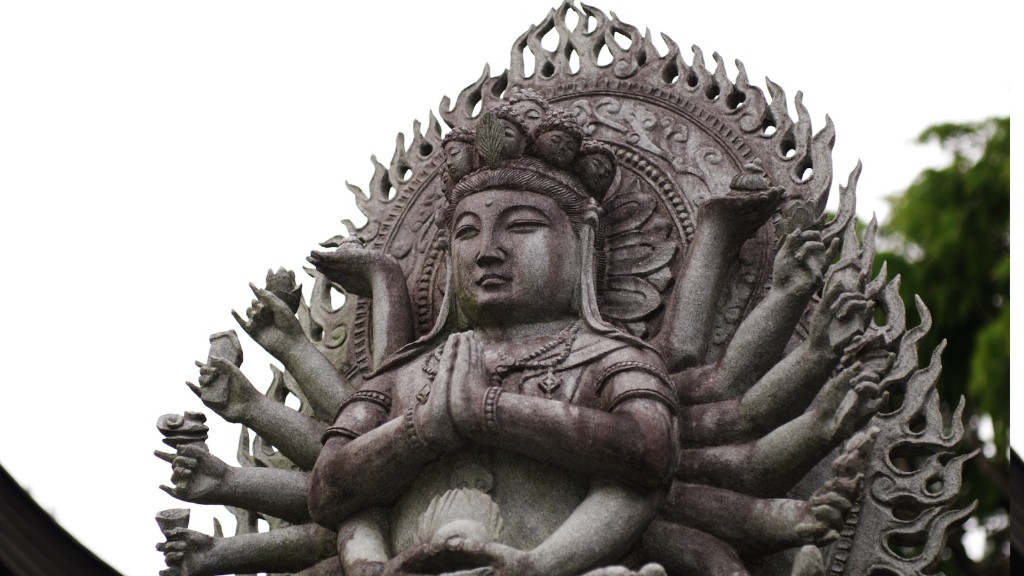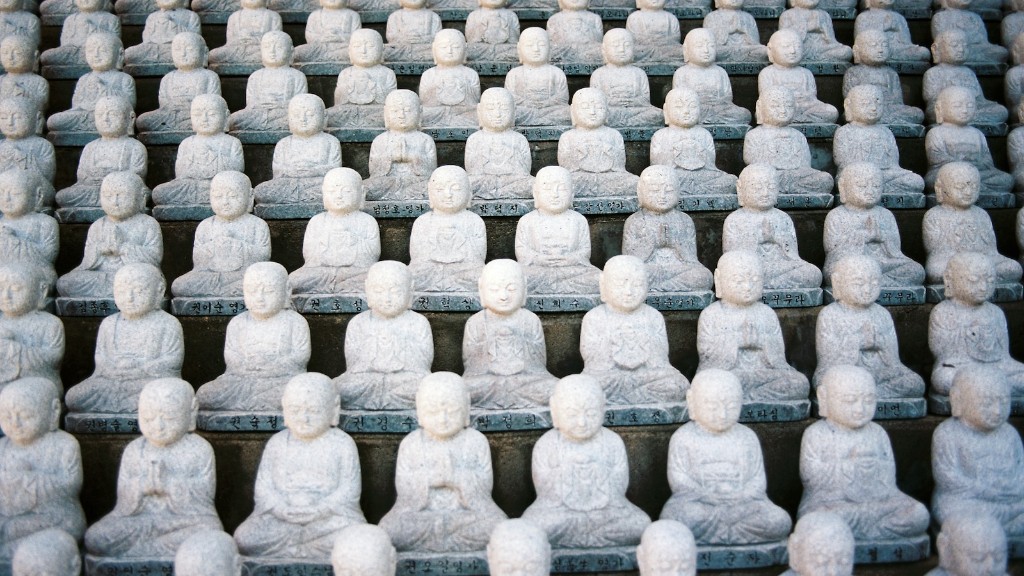Gods in Hinduism
Hinduism is replete with gods, sages, and goddesses, worshipped and revered by millions of devotees. It is believed that Hinduism contains an infinite number of deities. But how true is this notion? And how many gods are there in fact?
Conceptions of Gods in Hinduism
When looking at the pantheon of Hindu gods, one finds a multitude of gods. There are various interpretations concerning the exact number of gods in Hinduism. Generally speaking, the Hindu pantheon consists of about 330 million gods or in other words, 330 million aspects or faces of the same God. This does not include the innumerable goddesses and other spiritual energies who also form part of the religion. Even though there are countless gods and goddesses, the Vedas, the most ancient Hindu scriptures, suggest that all the gods and goddesses ultimately represent the same divine energy, Brahma.
Primary and Secondary gods in Hinduism
All the gods of the Hindu pantheon can be classified into primary and secondary according to their influence and importance. Primary gods are those who have been revered for centuries, and their appeal and reverence transcend boundaries. They are also worshiped by many people. The main primary gods in Hinduism are Brahma, Vishnu, and Shiva. Secondary gods are not as popularly worshipped, but they still possess immense power, and many devotees seek their blessings. Examples of secondary gods are Ganesha, Hanuman, and Kartikeya.
Meaning of Gods in Hinduism
In Hinduism, gods are revered as deities who embody different aspects of the Absolute Reality. They are believed to be powerful and can grant boons to those who sincerely seek their help. They are omnipresent and omniscient, and Hindus strongly believe that all these gods ultimately point towards Brahman (the Supreme Being). The gods also form an integral part of the religion and form part of the vast Hindu pantheon.
Worship of Gods in Hinduism
In Hinduism, gods are worshiped in various ways. People may choose to worship them in a temple, by reciting mantras and offering prayers, or by practicing yoga and conducting rituals. The most prominent form of god worship is the puja ritual, where devotees offer flowers, food, and incense to the gods as tokens of appreciation and devotion. This practice is widespread and an integral part of Hinduism.
Interconnectedness of Gods
In Hinduism, there is a notion of the interconnectedness of all the gods and goddesses. This means that although some gods and goddesses may appear to be distinct, in truth, all gods are considered to be expressions of the same Supreme Being. Therefore, there is no competition or enmity among the gods. This interconnectedness is further emphasised by stories that talk about how some gods may be celebrating while others may be facing challenges.
Relationship of Humans with Gods
In Hinduism, the relationship between humans and gods is of reverential devotion. People believe that gods have the ability to provide guidance and assistance to humans. There is a deep-rooted faith in the powers of gods, and it is believed that sincere devotion and obedience to them can lead to great rewards in life. As such, gods in Hinduism are seen as important entities who link mankind to the divine realm.
Connection of Gods with Supreme Being
In Hinduism, all gods and goddesses ultimately represent the same supreme energy, Brahma. The various gods are outward representations of various aspects of the divine. They are revered as powerful energies that can be invoked by humans to interact with the deity and seek their help in various matters. As such, all Hindu gods are interconnected, and when seen as a single entity, they ultimately point to one Supreme Being.
Multiplicity of Forms of Gods
The gods in Hinduism come in various forms and manifestations. Resourceful deities such as Laxmi and Saraswati are praised for their abundance, while gods such as Hanuman and Shiva come with a particular set of characteristics that can be invoked in times of need. Devotees believe that the gods can be invoked through the chanting of mantras or through the performance of rituals.
Implications of Gods
The gods in Hinduism are indicative of the multiple, interconnected nature of life. God worship can provide solace to those suffering from adversities, help them to focus and clear their minds, or shift their energies to a more conducive level. This can potentially bring about a positive transformation in their lives and set the right wheels in motion.
Interpretation of Symbols
The gods in Hinduism often come with their own set of symbols and signs. For example, Shiva’s trident and Ganesha’s elephant head are prominent symbols of their respective gods. The interpretation of these symbols vary depending on a person’s belief system and cultural understandings. For instance, some may interpret them as sources of strength and power, while others may take them as reminders of a divine presence.
Conclusion
In conclusion, the number of gods in Hinduism is vast and varied. They are often seen as manifestations of the same Supreme Being, and their symbols and signs are interpreted differently by different people. Worshipping them can bring about immense mental and spiritual benefits to those who choose to do so. What is clear is that there is an endless diversity of gods in Hinduism, which can bring about a sense of awe and inspiration in its adherents.


